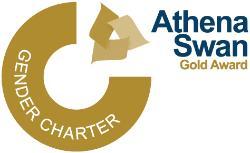Unconscious bias on interview panels: results of IHW pilot
Published: 28 April 2022
Prof Cindy Gray shares the findings of a pilot scheme undertaken by IHW in 2021 to address unconscious bias in staff recruitment processes
Unconscious bias is outside our control. It is influenced by our background, cultural environment and personal experiences, and leads to automatic, quick judgments of people and situations. Unconscious bias can be a problem during staff recruitment when we often have limited time and information to choose the best candidate.

As part of its Athena Swan activities, IHW led University of Glasgow in piloting Unconscious Bias on Interview panels (UBI) observations in 2021.
18 volunteers were trained by the UBI lead from the Chemistry Department at University of York, which has run the scheme since 2015.
Between July and December 2021, 39 candidate interviews were identified across five IHW research groups. Seven of these (18%) were observed by six of the trained volunteers. The interviews covered a range of grades and job families, and all took place on Zoom.
Key findings
Strengths included:
- Ensuring a relaxed and consistent format for each candidate
- Encouraging candidates to expand on answers to a level playing field for those affected by nerves
- Less experienced candidates being prompted to use non-work relevant examples
- Diversity of experience on the panel allowed members to identify different strengths and weaknesses in the candidates
Points for consideration:
- Avoid complex (e.g. two-part) questions
- Leave sufficient time for questions to be asked and answered fully
- Agree the decision-making process in advance and having enough time for a full discussion
- Score each candidate separately to ensure independence of decision-making
- Avoid judging candidates on whether they would "fit in" and on "gut feeling". If you have these concerns, try to identify why, and if the reason is relevant to the criteria, then you can use this information in your final selection
In addition:
- All observers found it a positive and rewarding experience
- Successful matching of interviews and observers often required multiple emails to hiring managers
- Shortlisting could only be observed for 2/7 panels
Recommendations:
- Process needs streamlined with dedicated administrative support to liaise between observers and hiring managers
- Shortlisting process needs to be more "accessible"
- Consider doing observations as part of interview training process
Prof Cindy Gray
Outgoing IHW Athena Swan Chair
First published: 28 April 2022
<< June 2022


